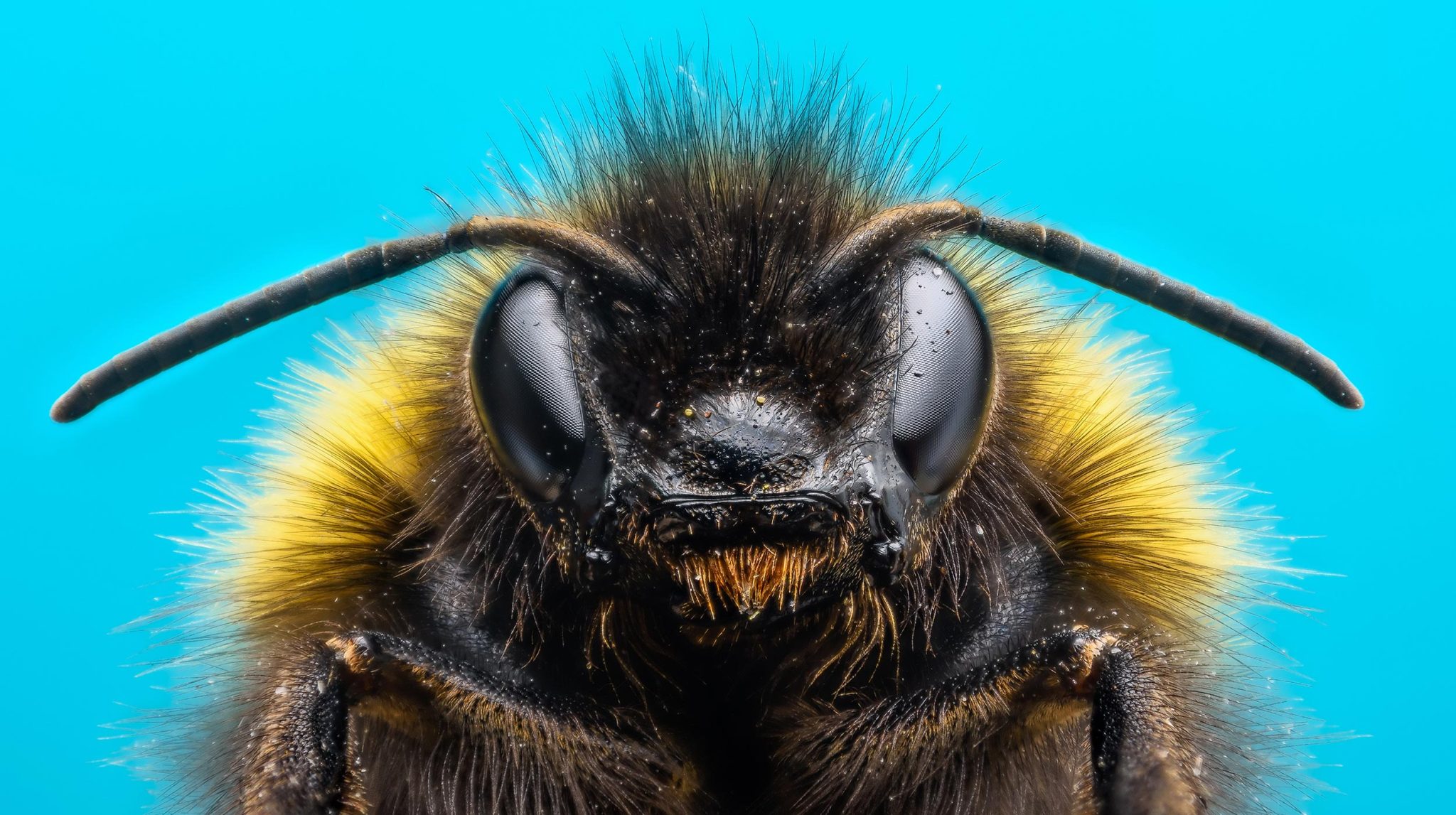

PLOS Biology에 발표된 새로운 연구에 따르면 호박벌은 다른 벌을 보고 모방함으로써 새로운 행동을 배울 수 있으며 이러한 행동은 식민지 전체에 빠르게 퍼질 수 있습니다. 이 연구는 사회적 학습이 꿀벌이 음식을 찾는 방식에 중요한 역할을 한다는 것을 시사합니다.
새로운 연구에 따르면 꿀벌은 다른 꿀벌을 관찰하고 학습함으로써 행동에서 새로운 “경향”을 포착하며 한 가지 행동 형태는 다른 버전이 감지되더라도 군체 전체에 빠르게 퍼질 수 있습니다.
런던의 Queen Mary University가 주도하고 오늘(3월 7일)에 발표된 연구 생물학 플러스사회적 학습이 광범위한 범블비 행동으로 이어진다는 강력한 증거를 제공합니다. 어떻게 그들은 음식을 먹습니다.
이를 증명하기 위해 다양한 실험이 행해졌다. 연구원들은 빨간색 탭을 시계 방향으로 누르거나 파란색 탭을 시계 반대 방향으로 눌러 열 수 있는 두 가지 선택 퍼즐 상자를 설계하여 자당 용액의 50% 보상을 표시했습니다.
‘표시’ 벌은 ‘관찰자’ 벌이 지켜보는 가운데 빨간색 또는 파란색 탭을 사용하도록 훈련되었습니다. 관찰자들이 퍼즐을 풀 차례가 되었을 때, 그들은 대안을 발견한 후에도 압도적으로 그리고 반복적으로 그들이 본 것과 같은 방법을 사용하기로 선택했습니다. 교습된 오이에 대한 이러한 선호도는 꿀벌의 전체 군체에 의해 유지되었으며, 평균 98.6%의 상자 개방이 교시된 방법을 사용하여 이루어졌습니다.
퍼즐 사각형 솔루션을 획득하기 위한 사회적 학습의 중요성은 시연자가 부족한 통제 그룹에서도 입증되었습니다. 이 그룹에서 일부 벌은 퍼즐 상자를 여는 데 성공했지만, 다른 벌이 먼저 여는 것을 보고 이익을 얻은 벌보다 훨씬 적은 횟수로 퍼즐 상자를 열었습니다. 대조군 꿀벌이 시연자와 함께 열어본 상자의 하루 평균 수는 하루에 28개 상자인 반면, 대조군 군집에서는 상자 1개에 불과했습니다.
추가 실험에서 연구자들은 “파란색”과 “빨간색” 시위대를 동일한 꿀벌 그룹에 배치했습니다. 첫 번째 모집단에서 12일까지 관찰자가 상자를 개봉한 263건 중 97.3%가 빨간색 방법을 사용했습니다. 두 번째 그룹에서 관찰자들은 하루를 제외한 모든 날에 빨간색보다 파란색 방법을 선호했습니다. 어느 쪽이든 이것은 행동 경향이 처음에 개체군에서 어떻게 나타날 수 있는지를 보여주었습니다. 대부분은 꿀벌이 선호하는 행동을 바꾸는 것이 아니라 먹이를 찾는 경험이 풍부한 꿀벌이 은퇴하고 새로운 학습자의 출현으로 인해 발생합니다.
꿀벌은 빨간색 탭을 눌러 상자 뚜껑을 시계 방향으로 회전시켜 퍼즐 상자를 엽니다. 크레딧: Bridges AD 외. 2023, PLOS 생물학
유사한 실험에서 유사한 결과가 다음에서 사용되었습니다.[{” attribute=””>species such as primates and birds to suggest that they, like humans, are capable of culture. If bumblebees are capable of this, too, this could potentially explain the evolutionary origin of many of the complex behaviors seen among social insects. It might be possible that what now appears instinctive could have been socially learned, at least originally.
Dr. Alice Bridges, the lead author from Queen Mary University of London, said: “Bumblebees – and, indeed, invertebrates in general – aren’t known to show culture-like phenomena in the wild. However, in our experiments, we saw the spread and maintenance of a behavioral “trend” in groups of bumblebees – similar to what has been seen in primates and birds. The behavioral repertoires of social insects like these bumblebees are some of the most intricate on the planet, yet most of this is still thought to be instinctive. Our research suggests that social learning may have had a greater influence on the evolution of this behavior than previously imagined.”
Professor Lars Chittka, Professor of Sensory and Behavioural Ecology at Queen Mary University of London and author of the book ‘The Mind of a Bee’, said: “The fact that bees can watch and learn, and then make a habit of that behavior, adds to the ever-growing body of evidence that they are far smarter creatures than a lot of people give them credit for.
“We tend to overlook the “alien civilizations” formed by bees, ants, and wasps on our planet – because they are small-bodied and their societies and architectural constructions seem governed by instinct at first glance. Our research shows, however, that new innovations can spread like social media memes through insect colonies, indicating that they can respond to wholly new environmental challenges much faster than by evolutionary changes, which would take many generations to manifest.”
Reference: “Bumblebees acquire alternative puzzle-box solutions via social learning” by Alice D. Bridges, HaDi MaBouDi, Olga Procenko, Charlotte Lockwood, Yaseen Mohammed, Amelia Kowalewska, José Eric Romero González, Joseph L. Woodgate and Lars Chittka, 7 March 2023, PLOS Biology.
DOI: 10.1371/journal.pbio.3002019
